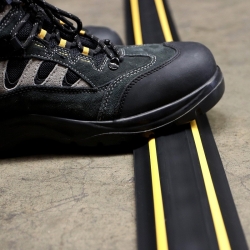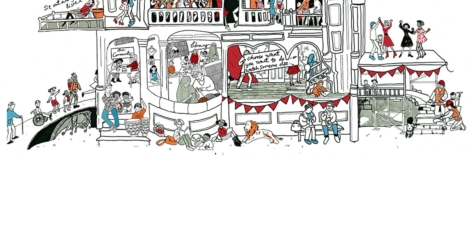To provide the best experiences, we use technologies like cookies to store and/or access device information. Consenting to these technologies will allow us to process data such as browsing behaviour or unique IDs on this site. Not consenting or withdrawing consent, may adversely affect certain features and functions.
The technical storage or access is strictly necessary for the legitimate purpose of enabling the use of a specific service explicitly requested by the subscriber or user, or for the sole purpose of carrying out the transmission of a communication over an electronic communications network.
The technical storage or access is necessary for the legitimate purpose of storing preferences that are not requested by the subscriber or user.
The technical storage or access that is used exclusively for statistical purposes.
The technical storage or access that is used exclusively for anonymous statistical purposes. Without a subpoena, voluntary compliance on the part of your Internet Service Provider, or additional records from a third party, information stored or retrieved for this purpose alone cannot usually be used to identify you.
The technical storage or access is required to create user profiles to send advertising, or to track the user on a website or across several websites for similar marketing purposes.
 A majority of the public believe it is safer for younger people to return to work than their older counterparts, according to a nationwide survey by Populus Data Solutions. The survey, carried out on behalf of student employer Stint, claims that 73 percent of respondents felt it was not safe for over 65s to return to work, while 52 percent said they believed it wasn’t safe for workers over 55. (more…)
A majority of the public believe it is safer for younger people to return to work than their older counterparts, according to a nationwide survey by Populus Data Solutions. The survey, carried out on behalf of student employer Stint, claims that 73 percent of respondents felt it was not safe for over 65s to return to work, while 52 percent said they believed it wasn’t safe for workers over 55. (more…)








 Kincentric
Kincentric
 Environmental concerns and the changing work landscape could lead to a noticeable drop in both domestic and international business travel, as nearly half of UK workers (48 percent) are concerned about its negative environmental impact, according to new research from
Environmental concerns and the changing work landscape could lead to a noticeable drop in both domestic and international business travel, as nearly half of UK workers (48 percent) are concerned about its negative environmental impact, according to new research from 
 Over a third (36 percent) of UK businesses believe that implementing new health and safety measures in accordance with the Government’s recently published guidelines are the biggest challenge they face as lockdown eases and they attempt to return to the workplace, according to new research conducted by the UK law firm,
Over a third (36 percent) of UK businesses believe that implementing new health and safety measures in accordance with the Government’s recently published guidelines are the biggest challenge they face as lockdown eases and they attempt to return to the workplace, according to new research conducted by the UK law firm, 




















June 19, 2020
We are in danger of reanimating some bad ideas about work
by Mark Eltringham • Comment, Working culture